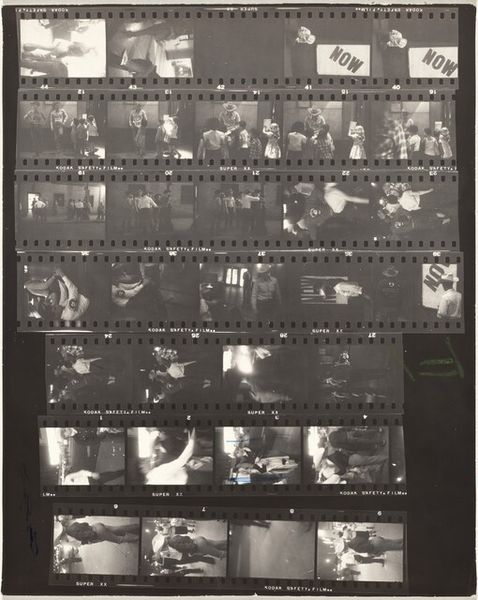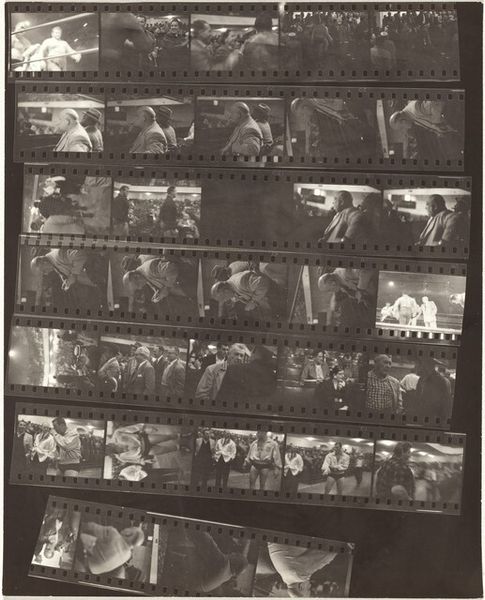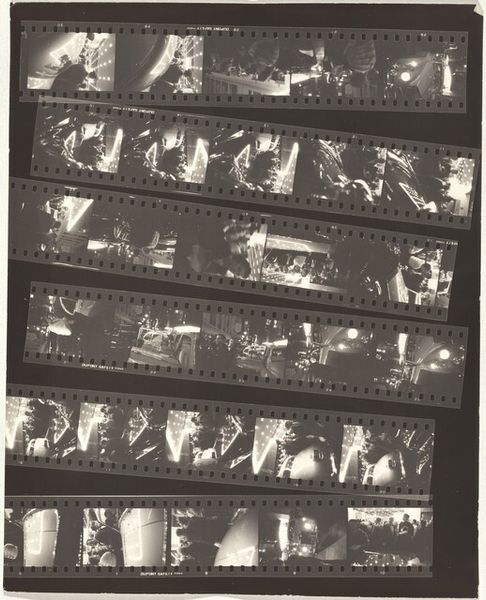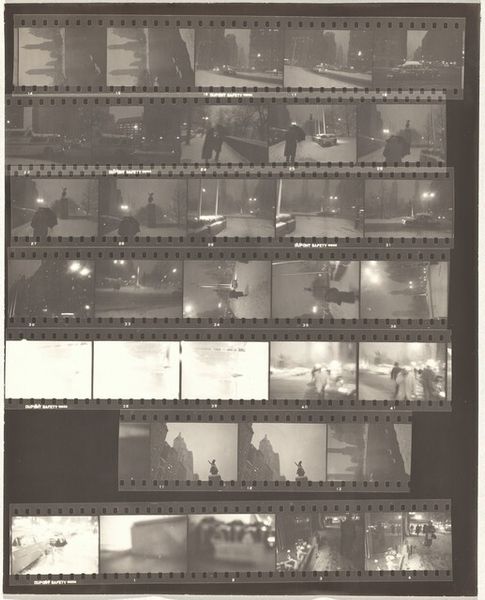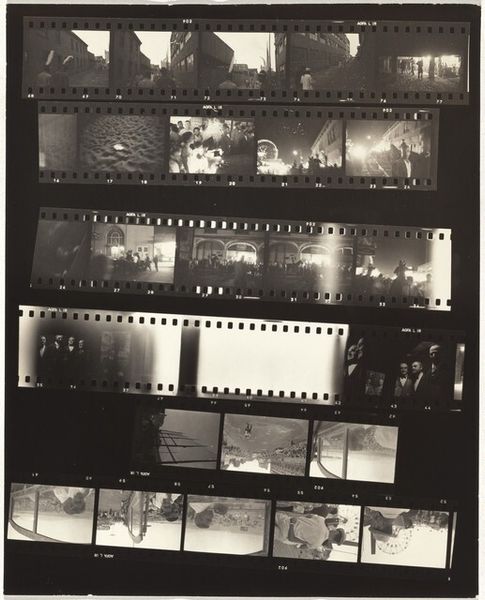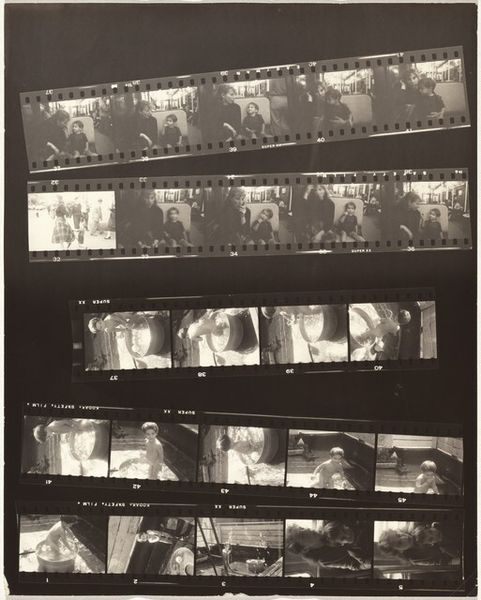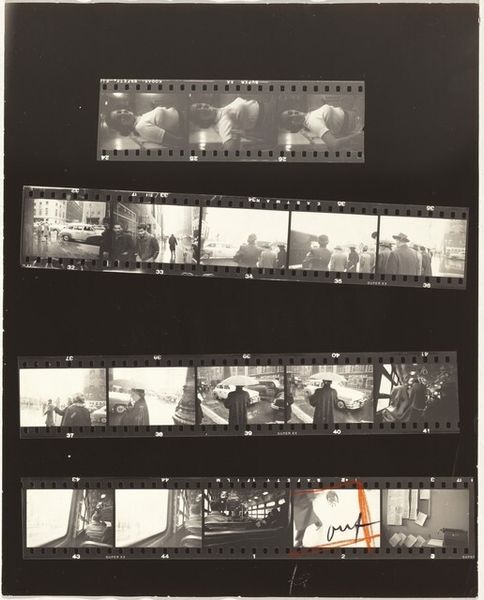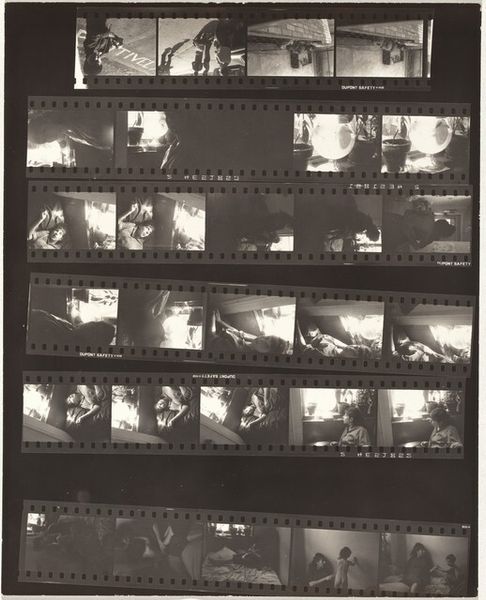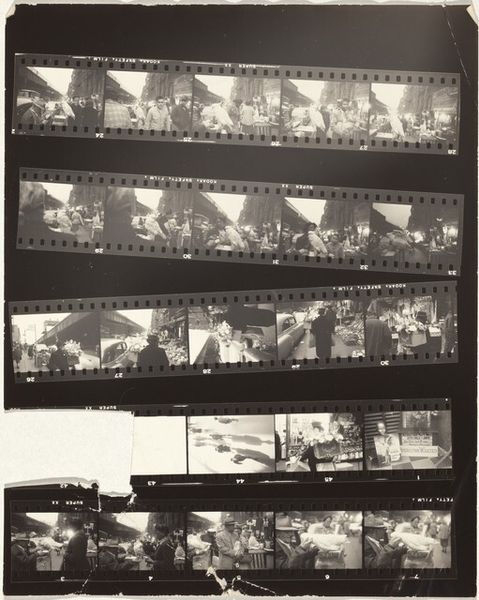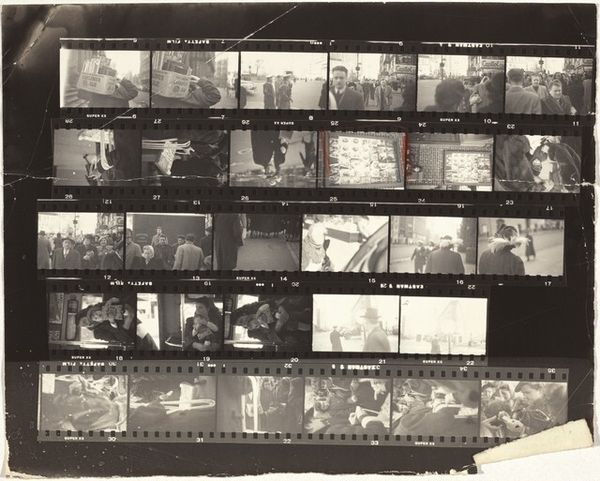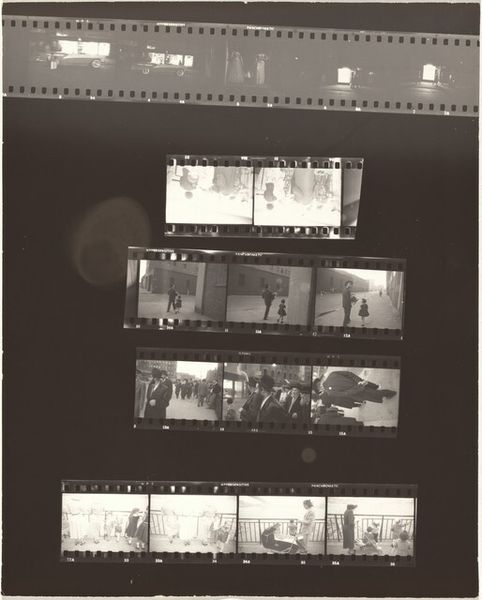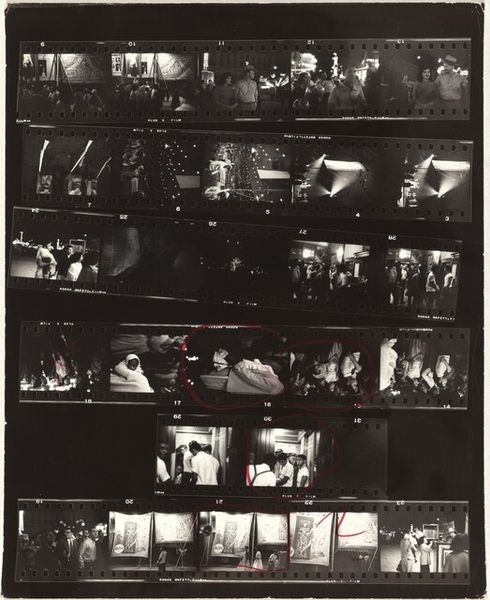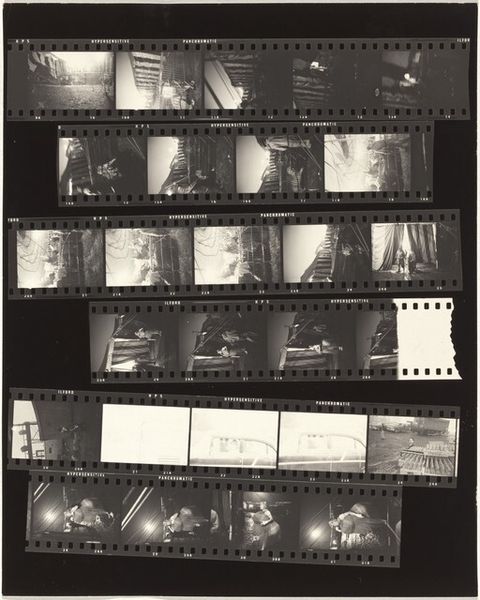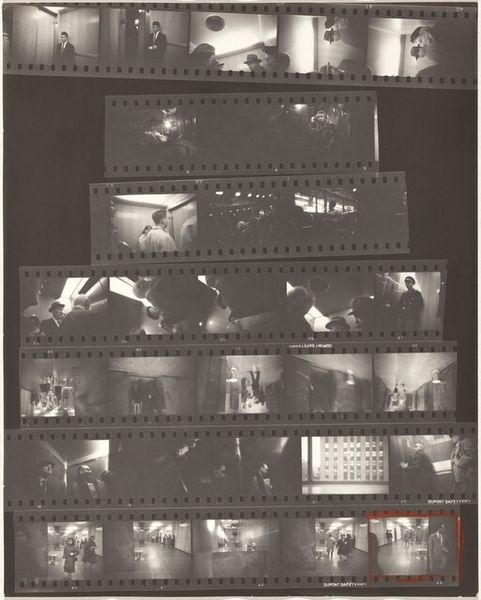
photography
#
film photography
#
conceptual-art
#
wedding photography
#
archive photography
#
street-photography
#
photography
#
monochrome photography
#
monochrome
Dimensions: sheet: 25.2 x 20.3 cm (9 15/16 x 8 in.)
Copyright: National Gallery of Art: CC0 1.0
Editor: Here we have Robert Frank's "New York City 6," created in 1960. It's a black and white photographic piece showing multiple strips of film negatives. It almost feels like a contact sheet, offering us a glimpse into the artist's process. What strikes you most about this particular work? Curator: I see a deliberate challenge to the idealised image of America that was so prevalent in the post-war period. Frank was Swiss, an outsider, and "The Americans," from which these images likely come, shows the gritty, unvarnished realities often ignored. The use of the film strip format itself is important – what does it suggest to you? Editor: That it's about capturing fleeting moments, or a series of connected scenes perhaps? It’s definitely rawer than a single, perfectly composed shot. Curator: Precisely! Consider the social context. The Civil Rights movement was gaining momentum. The cracks in the American Dream were widening. Frank’s work became a powerful visual counter-narrative. It also highlights the role of photography in shaping public perception. Whose stories get told and how? He challenged the power structures in the very act of photographing them, would you agree? Editor: Absolutely. Showing this… proof of work… this feels really different. It's not just the image itself, but the evidence of observation, of him selecting a specific narrative to put forward, right? I can't help wonder if he means for this "behind-the-scenes" piece to be included when considering the artistic meaning? Curator: Frank’s deliberate aesthetic choices, from the high contrast to the unconventional compositions, speak volumes. These aren’t simply snapshots; they’re loaded with social commentary. Even the graininess is a visual articulation of a departure. Think of this within a socio-political framework where photographers held great influence and, frankly, this feels rather defiant. Editor: That's so interesting to consider; this makes it much more compelling and layered. Now I understand why it continues to have the reputation of speaking candidly. Curator: Indeed. "New York City 6" serves as a reminder of the political weight that images carry and that an artist, through these unconventional processes, might find success communicating outside institutional demands.
Comments
No comments
Be the first to comment and join the conversation on the ultimate creative platform.
